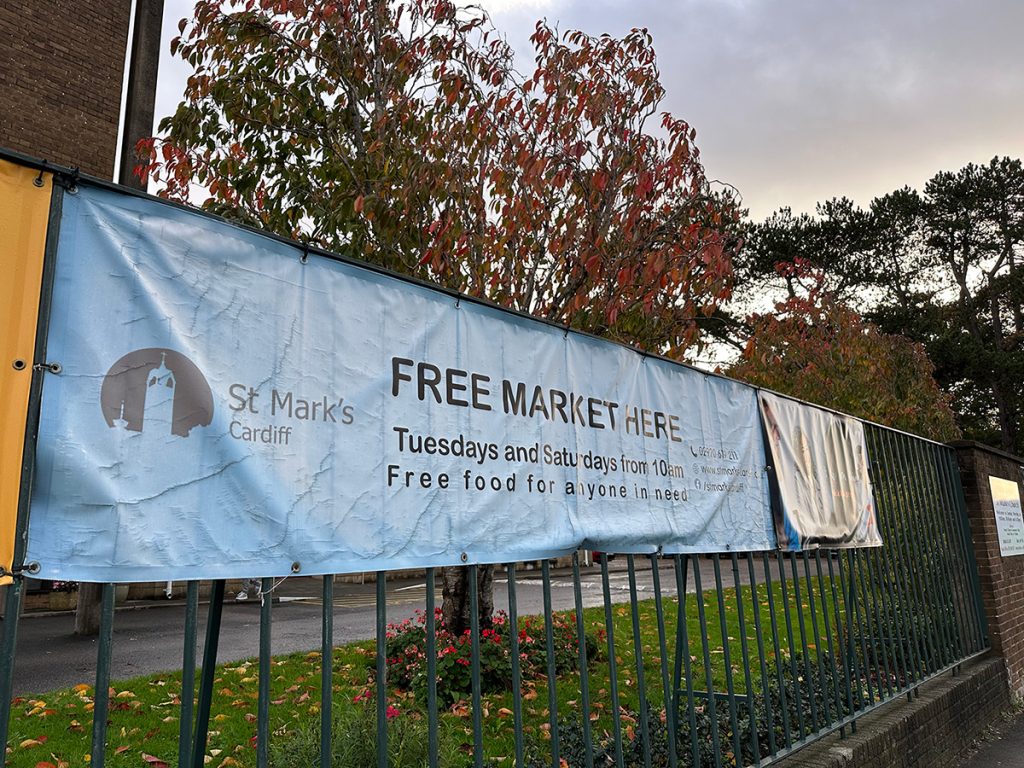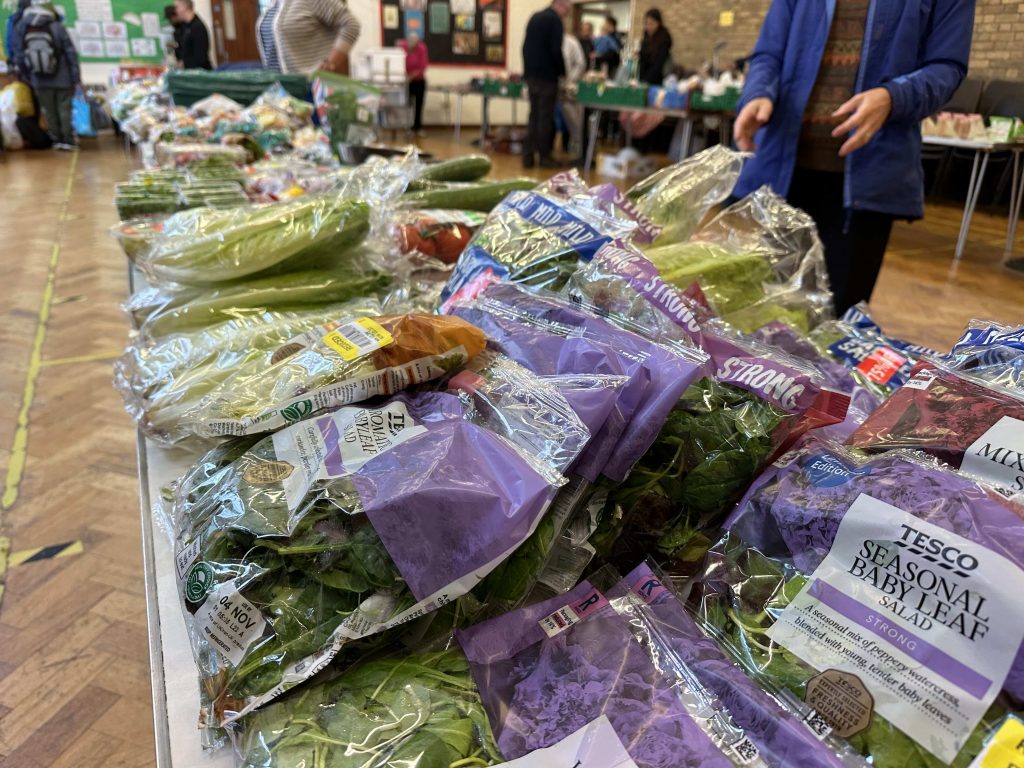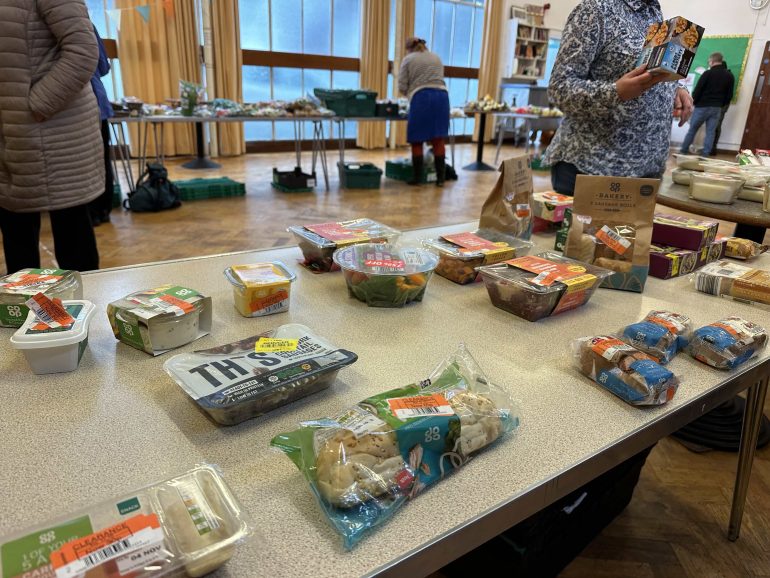St Mark’s Church has seen the number of people using the service rise from 50 per week to 200 per week, since it opened in March 2020.
A FREE food market in Gabalfa has seen an increase in numbers from 50 families per week when it was first set up in March 2020, to 200 per week more recently.
Organiser Della Nelson attributed the rise in numbers coming to the St Mark’s Church food market to the cost of living crisis.
She described new customers as people who “look more affluent but they might have gone from two incomes to one; they can’t afford their house or car.
“Lots of people are slipping through the net”.
In contrast to the increased numbers relying on the free food market each week, Ms Nelson also described a drop in the amount of food donated to the church.
“In the last few months we’ve only been getting a third from each store, compared to that we used to,” she said.
Ms Nelson suggested reasons for the reduced donations may be a result of people buying reduced to clear items straight from the supermarkets as well as stores keeping food for longer now that best before dates on fruit and vegetables have been removed.
She also suggested that stores themselves are having fewer deliveries because of the fuel crisis and the combination of factors is resulting in less being shared out to charities.

The food market started in March 2020 during COVID-19 with only one store partnership and it focused primarily on providing hampers to those referred to them through health visitors. Ms Nelson described making hampers for new mothers who had recently given birth but were isolating due to a COVID-19 infection.
The food market itself was “born out of necessity” due to a particularly large donation one week. The market, which now operates on Tuesday, Saturdays, and Sundays (in Tremorfa) 10-10.3 and is partnered with 50 supermarkets and shops across Cardiff, allows people to come in and pick their own food rather than receive a pre-packaged hamper as would be the case at a food bank.
Visitors are given a ticket upon arrival and join a queue that leads round a series of tables full of frozen meat, fresh bread, sandwiches and ready meals, sweet treats, fresh fruit and vegetables and whatever might have been donated in bulk that week, for example mince pies.
Sam McDonald, a part time volunteer, said that “people are grateful for whatever they can get” and that since she had started in June, demand had “increased immensely”.

Peter Edbury, a volunteer, described some of those attending: “You have regulars, people down on their luck, people sleeping rough. You have people who depend quite heavily on this.”
A 6th form student at Cathays High School who has been attending the food market at least twice a week for the past month said it was “so helpful” and a Cardiff University student who wished not to be named because she felt embarrassed, said that she came “often” and would come more but was unable to because of her placement.
Rosemary Counsell recalled a man who had come to the market and asked to take a pint of milk because he couldn’t afford to buy one and another recalled a woman battling cancer who had recently lost her job due to running over her contractual sick day allowance and relied on the food market.
All the volunteers were keen to emphasise the food market was not a food bank and those coming did not have to have any proof to show that they were in need and could take as much or as little as they liked.
Reverand Rob McDonald who took up his post in June, said that “Food banks are important but they require documentation (unlike the food market)
“You have all sorts of people, people who had a terrible week at work, they haven’t got paid, they need help.
“If a family can save £15 on food to spend on their kids and take them for an ice cream at Barry Island then that’s important.”
Ms Counsell described those who used the free food market as “brave” to ask for help. She continued that there are people who are “clearly in need” but there are “so many obstacles to asking for help”.
When asked how the church might continue to operate in the current energy crisis, Ms Nelson said: “If we have to do this outside or without the heating then we will.”



